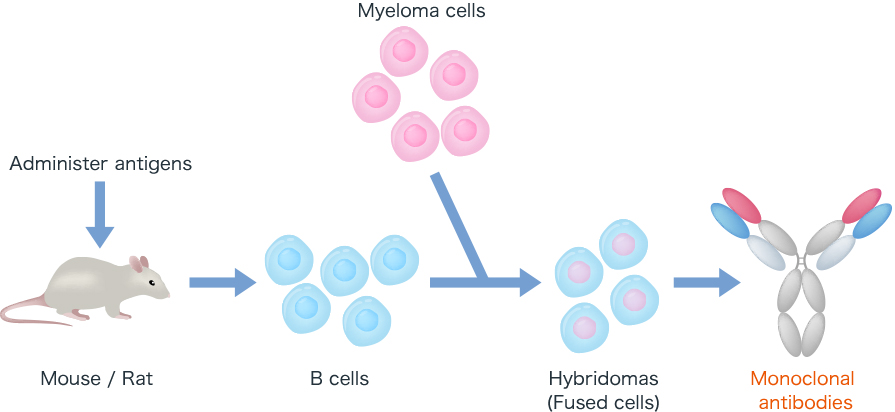What are therapeutic antibodies?
Therapeutic antibodies are targeted biopharmaceuticals that trigger a biological response
Therapeutic antibodies are drugs that use antibodies, one of the main players in our immune system inherent in our body.
By making use of the specificity by which each antibody recognizes only one antigen, pinpointed attacks on specific antigens are possible. Therapeutic antibodies are attracting attention as a therapeutic product with expectation of high therapeutic effects and very few side effects.
Monoclonal antibodies
When pathogens such as bacteria and viruses invade our body, antibodies are produced from B cells, a type of immune cell, in order to attack foreign substances (antigens). These antibodies have the characteristics of recognizing and attacking only specific antigens, and monoclonal antibodies are made using this property.
“Mono” means “one” and “clonal' is named after “clone, an identical copy which has exactly the same genes with a certain parent strain”.
Production method from hybridoma (fusion cells) *
When an antigen, such as cancer cells, is administered to an animal such as a mouse, B cells are produced in the body to release antibodies that bind to the antigen. By fusing immortal cells (myeloma cells) with the B cells, cells that can produce antibodies and can proliferate infinitely, and hybridomas (fused cells) are created. From these cells, large amounts of monoclonal antibodies can be produced.

Other than the hybridoma technology, there are other technologies such as creating an antibody gene library from B cells and obtaining antibodies by phage display.
